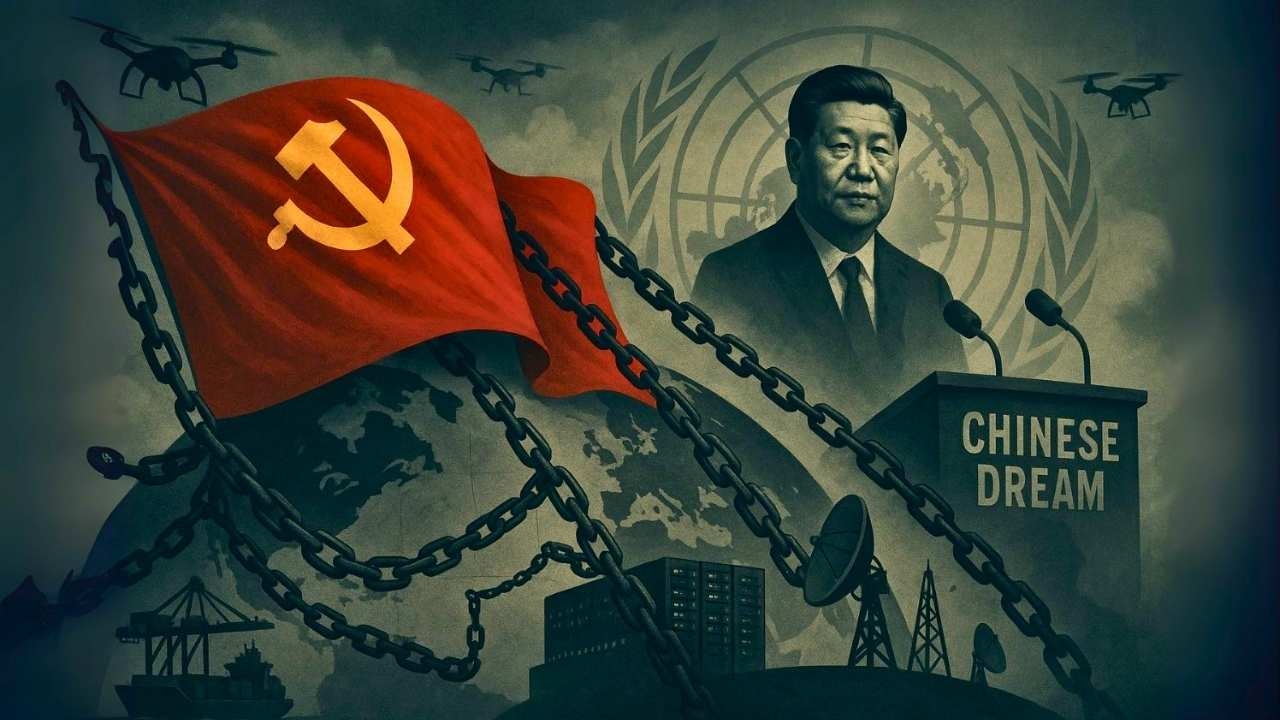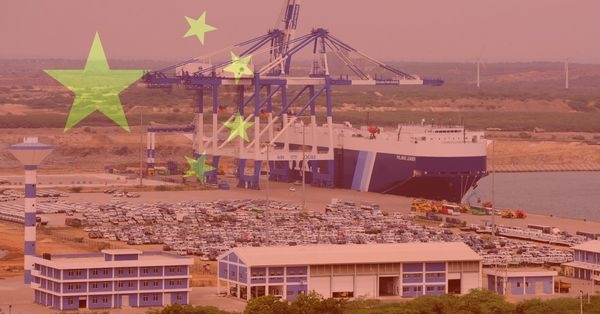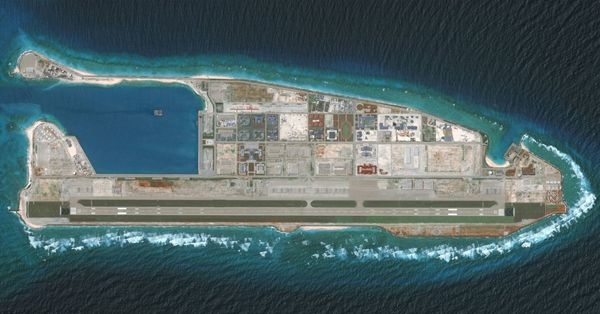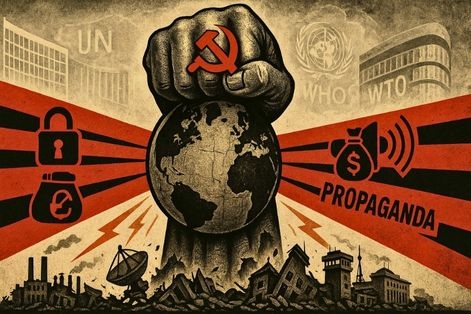China’s Global Rise or CCP’s Authoritarian Expansion?
27 Jul 2025 12:34:24

The 21st century has veiled the international politics and policies under the ideals of sovereignty and security. But the bigger question lies in sovereignty for whom and security from whom.
And its answer remains free in the speech delivered by the CCP president, celebrating the CCP’s centenary, where CCP President Xi Jinping warned that ‘the Chinese people will never allow foreign forces to bully or oppress us.” And this notion stands as more of Xi Jinping’s chimaera, reclaimed and remarked as “Chinese Dreams,” which assures to envision reclaiming China’s status as a dominant global power, rooted in the concept of authoritarianism over a world not of China but of the CCP.
What China once showed the world as the economic miracle to the global world now reveals to be a complex and concerning picture: not because a nation is rapidly expanding its political, military, and technological advancements but because of the blueprint and ideological influence it holds of the CCP with negligible regard for international security and sovereignty.
China’s economic rise = Threat to the country’s sovereignty
China’s rise has been powered by unprecedented economic growth. Through initiatives like the Belt and Road Initiative (BRI), China has invested in infrastructure across Asia, Africa, and Europe. While framed as development aid, these investments are planned to trap countries in “debt diplomacy,” where China gains control over strategic assets: ports, railways, and natural resources, when nations cannot repay loans.

In Sri Lanka, China secured control of the Hambantota Port on a 99-year lease. In Africa, Chinese firms now dominate mining sectors in countries like the Democratic Republic of Congo, where cobalt essential for global tech is extracted under exploitative conditions.
Militarisation and Territorial Aggression
China’s territorial ambitions are most visible in its aggressive moves in the South China Sea, where it has constructed artificial islands and militarised them in violation of international law. Despite a 2016 ruling by the Permanent Court of Arbitration rejecting China’s claims, Beijing continues to expand its naval footprint, threatening freedom of navigation in one of the world’s busiest trade routes.

Similarly, China’s confrontations along the India-China border, especially the deadly Galwan clash in 2020, show a willingness to escalate military tensions. In the East China Sea, it routinely provokes Japan over the Senkaku Islands. Its military modernisation, with a rapidly expanding navy, space capabilities, and hypersonic missile programs, indicates preparation not just for defence but for dominance.
Technology and Cyber Warfare
China’s expansion is not limited to geography. The digital frontier is another domain where it seeks control. Tech giants like Huawei and ZTE have faced bans and scrutiny in multiple countries over concerns of espionage. Beijing’s Social Credit System and pervasive surveillance architecture are already being exported, enabling authoritarian governance models globally.

Cyberattacks originating from China have targeted governments, corporations, and institutions across the world. Intellectual property theft, hacking into sensitive defence databases, and manipulating social media to spread propaganda are part of Beijing’s asymmetric warfare strategy. Over various briefings, both the veto power holders, the US and the UK, have targeted China for running state-sponsored cyber espionage against them.
‘CCP’s China’, Undermining Global Institutions and Norms
China’s growing ideological and monetary influence in international institutions like the United Nations, World Health Organisation (WHO), and World Trade Organisation (WTO) has raised alarms. Rapidly manipulating these bodies to mute criticism of its domestic policies, particularly on issues like Xinjiang’s Uyghur repression, Hong Kong’s autonomy, and Tibet’s cultural erosion.

The world saw this during the early days of the COVID-19 pandemic, when China delayed critical information and pushed a narrative that deflected accountability, with WHO’s perceived complicity. The global consequences were catastrophic.
Conclusion
China’s expansionist agenda poses a clear challenge to the liberal international order. An order built on sovereign equality, rule of law, open markets, and human rights. Unlike the post-war rise of powers like Japan or Germany, China’s trajectory is not one of assimilation but of disruption.
CCP’s strategy of exporting its authoritarian governance model, using a mix of economic inducement and coercion: From sponsoring Confucius Institutes in universities to controlling Chinese diaspora groups, the Chinese Communist Party (CCP) is actively shaping perceptions and silencing dissent abroad.
Meanwhile, China continues to crush dissent at home. From the suppression of Hong Kong’s democracy movement to the internment of over a million Uyghur people. These actions stand in stark contrast to the liberal democratic norms that underlie the current world order.
Article by

Kewali Kabir Jain
Journalism Student at Makhanlal Chaturvedi National University of Journalism and Communication